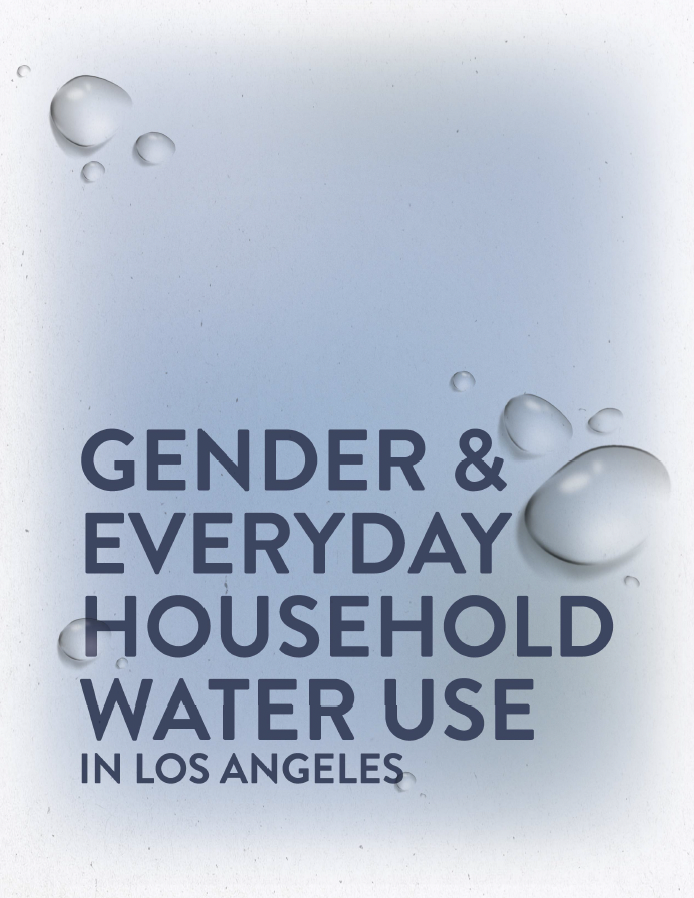Announcing the New Report: Gender and Everyday Household Water Use in Los Angeles
 The UCLA Center for the Study of Women|Barbra Streisand Center is excited to share its newest report, Gender and Everyday Household Water Use in Los Angeles. Written by Kelsey Kim and Jessica Cattelino, this comprehensive study addresses the crucial role of gender in water management within households, shedding light on a previously underexplored aspect of water sustainability.
The UCLA Center for the Study of Women|Barbra Streisand Center is excited to share its newest report, Gender and Everyday Household Water Use in Los Angeles. Written by Kelsey Kim and Jessica Cattelino, this comprehensive study addresses the crucial role of gender in water management within households, shedding light on a previously underexplored aspect of water sustainability.
Los Angeles, a global megacity, faces numerous water-related challenges: importing water from distant regions, groundwater contamination, aging infrastructure, climate change, and environmental justice concerns like water quality and access. The city’s history of record-breaking droughts, including those from 2012-2016 and 2020-2023, highlights the urgency of addressing these issues. Though water problems are often seen as disproportionately impacting women and girls in the Global South, gender’s influence on water use in cities like Los Angeles has not received adequate attention.
The report, a collaboration with UCLA’s Sustainable LA Grand Challenge, fills this knowledge gap by examining how gender intersects with race, class, and migration to shape residential water use. Researchers conducted qualitative fieldwork to uncover the everyday realities of water management in households, focusing on how women’s roles often make them responsible for the majority of household water-related tasks.
Key findings include:
- Women disproportionately manage household water use, even in families that don’t perceive water management as gendered.
- Immigrant households possess valuable but underutilized knowledge about water conservation.
- The distinctions between “residential” and “commercial” water use blur in ways that disproportionately affect women.
These insights reveal areas for improving water conservation efforts and raise concerns about the potential for current strategies to perpetuate gender and racial inequalities. The report offers actionable recommendations to promote water and gender justice in Los Angeles, ensuring more equitable water use practices.

